English Language
Curriculum Objectives
Reading
- To read and demonstrate an understanding of a variety of literary, graphic, and informational texts, using a range of strategies to construct meaning;
- To recognise a variety of text forms, text features, and stylistic elements and demonstrate understanding of how they help communicate meaning;
- To use knowledge of words and cueing systems to read fluently;
- To reflect on and identify their strengths as readers, areas for improvement, and the strategies they found most helpful before, during, and after reading.
Writing
- To generate, gather, and organise ideas and information to write for an intended purpose and audience;
- To draft and revise their writing, using a variety of informational, literary, and graphic forms and stylistic elements appropriate for the purpose and audience;
- To use editing, proofreading, and publishing skills and strategies, and knowledge of language conventions, to correct errors, refine expressions, and present their work effectively;
- To reflect on and identify their strengths as writers, areas for improvement, and the strategies they found most helpful at different stages in the writing process.
Oral Communication
- To listen in order to understand and respond appropriately in a variety of situations for a variety of purposes;
- To use speaking skills and strategies appropriately to communicate with different audience for a variety of purposes;
- To reflect on and identify their strengths as listeners and speakers, areas for improvement, and the strategies they found most helpful in oral communication situations.
Objectives - Attitude, Value & Belief
- Attitude: To develop students’ enjoyment, confidence and independence as language users and learners.
- Value: To develop students’ competence in learning and using language in a broad range of contexts.
- Belief: To develop students’ knowledge and understanding of texts and how texts are structured within different contexts.
Curriculum Framework
- The English language curriculum at A-School aims to encourage students to develop positive attitude towards learning English, to develop students’ ability in using language effectively and to enable critical reflection on how language works.
- Our goal is to maintain high standards in teaching and learning by offering abundant communication opportunities. We aim to balance accuracy and fluency in the early years of primary school English learning.
- Our method is focused on a balanced literacy approach (speaking and listening, reading and writing). In reading, teaching and learning activities include guided reading, shared reading/reading aloud, phonics, personal responses, and independent reading. Students engage in author studies, novel studies and literature circles. In writing, learning activities include a focus on different text types (fictional and factual), process writing approach, modelled writing, guided writing, and independent writing. In speaking and listening, students engage in several activities such as retelling, role-playing, drama activities, Show and Tell, Discovery Quests, Socratic Circles and debates. Grammar is taught in context through reading and writing. The teaching strategies cater for learners with different needs through differentiated tasks within a classroom and across classrooms.
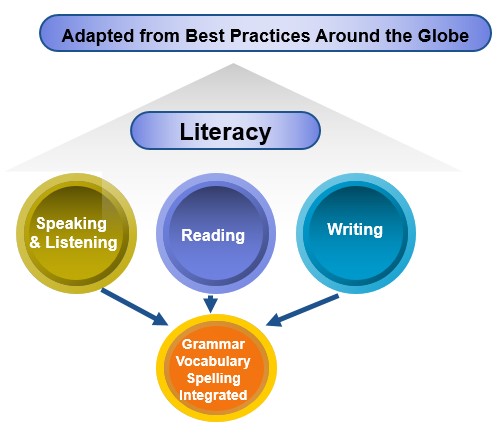
Assessments
Our assessments are both formative and summative, and reflect both the methodology and learning outcomes through progress reports and learner portfolios. Formative assessment is used to improve student learning and student progress in speaking and listening, reading, and writing is monitored through daily classroom tasks and activities. Summative assessment is used to summarise student learning at a particular period of time. First graders do not have any summative assessment. There is continuous evaluation of their learning in lesson time instead.
Formative Assessments
- Homework
- Observations in classes
- Classwork
- Projects
- Online assignments
Summative Assessments
- Mid-term assessment (G3-6)
- Term-end assessment (G2-6)
International Assessments
- TOEFL
- ICAS
Homework Policy
Homework is planned and assigned in order to consolidate learning and to reinforce concepts learnt in class. Homework tasks are varied and meant to motivate learners. Daily reading is considered as an important part of homework.
Highlights of Academic Activities
Drama in the Classroom
Drama is a powerful tool which connects students with learning and literature. It can provide a process for learning by living through or experiencing an event. Process drama is incorporated in the curriculum across grades, enabling a variety of learners to engage with stories and novels.
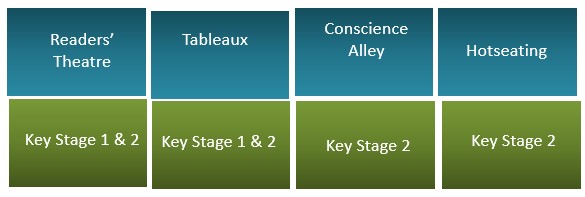
Poetry Across Grades
Integration of poetry in the curriculum helps learners work on a range of language arts skills. It is a creative and inclusive medium which stretches the learner’s linguistic abilities. In A-School, the children read, present and write poetry across grades. They are given opportunities to participate in competitions such as the Hong Kong Budding Poets Award in order to enable them to strive for excellence in the use of language and literature.
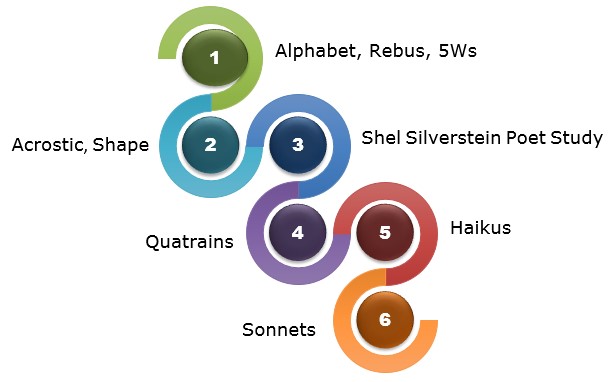
Oral Communication Activities
Each and every student is given opportunities to engage in oral communication activities in order to strengthen fluency and language skills, so as to develop confidence in public speaking. Activities such as Show and Tell are a gentle introduction for the lower primary students to the world of presentations. Once they have built up the confidence, activities such as Discovery Quests enable learners to exercise choice in topics as well as build research skills for presentation. In the upper grades, students learn debating skills through solo, paired and group debates.
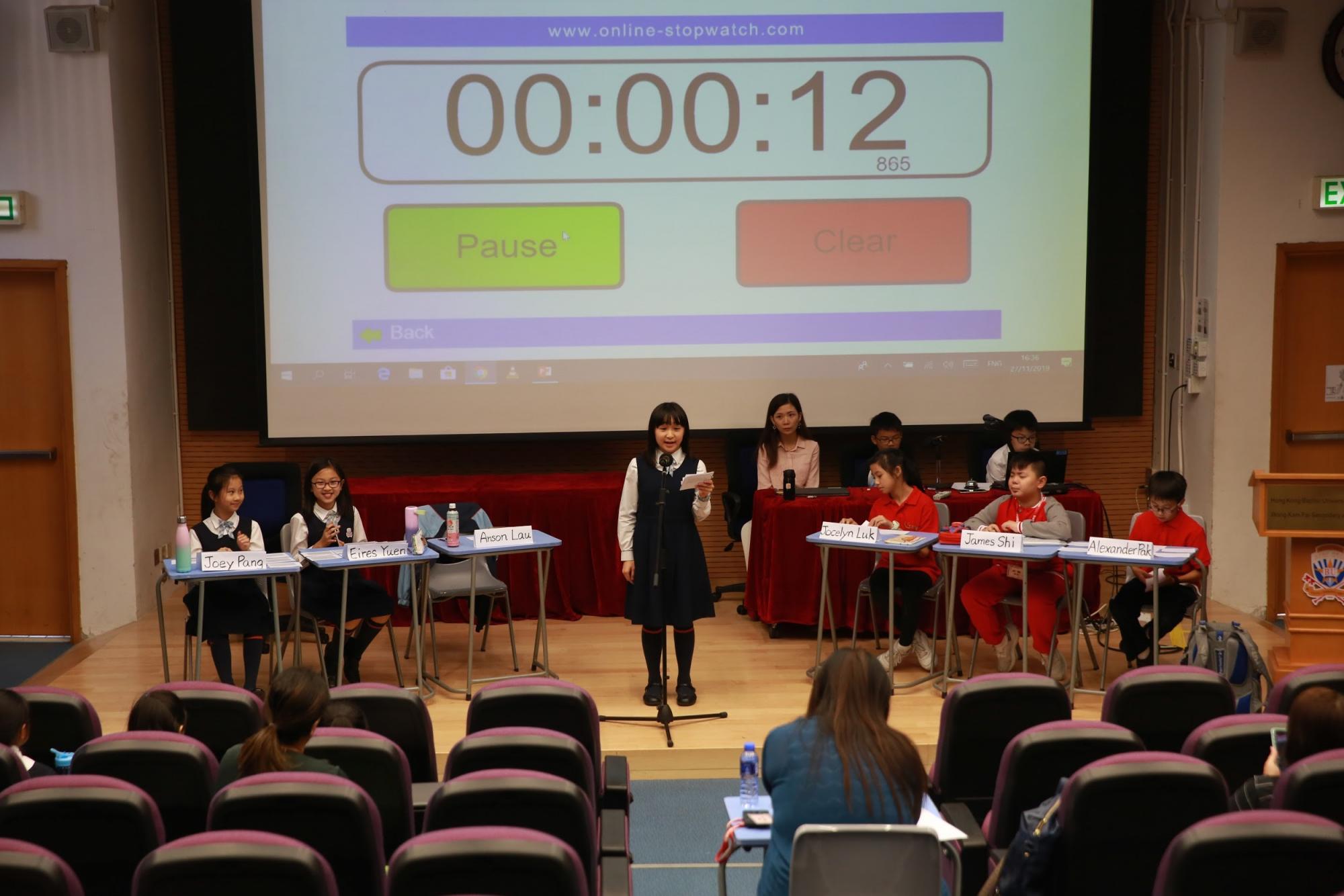 Debating
Debating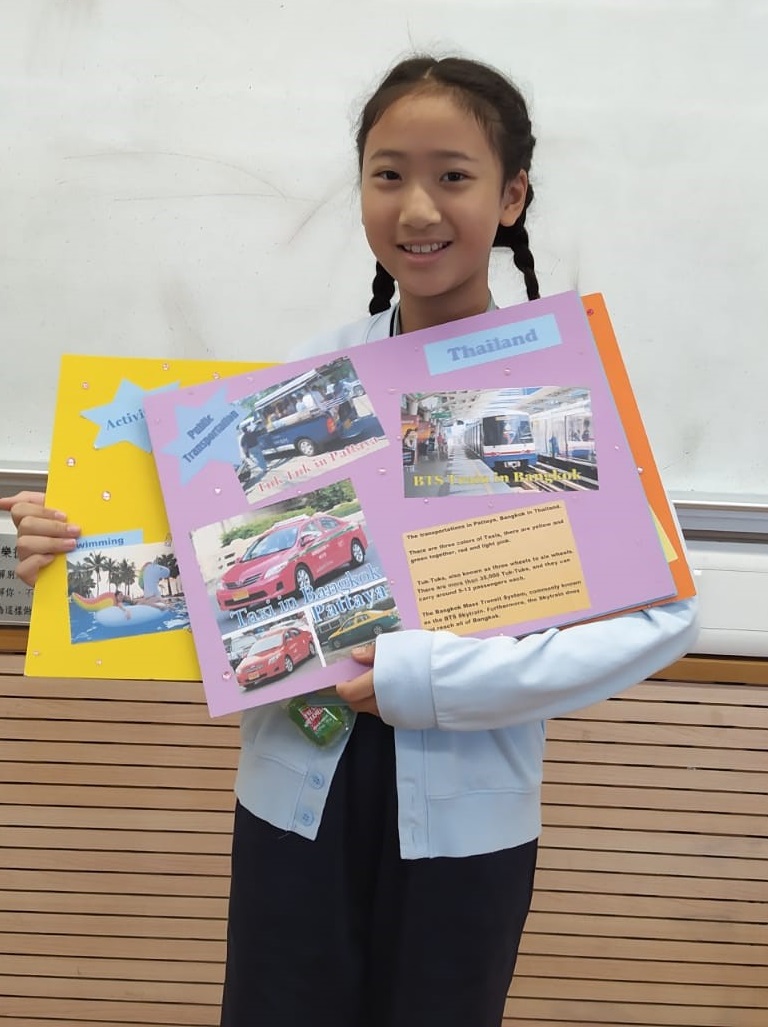 Discovery Quest Presentations
Discovery Quest Presentations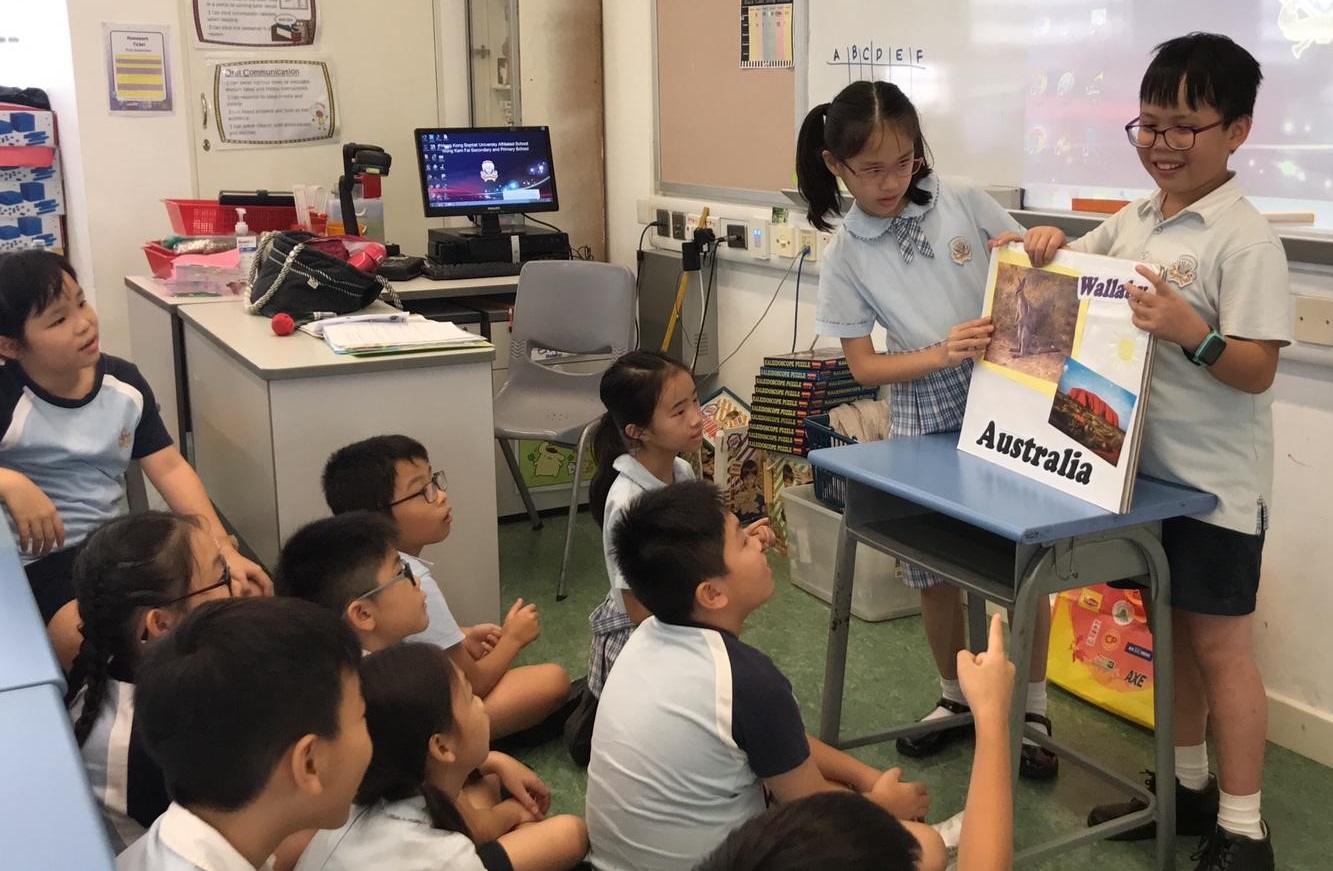 Discovery Quest Presentations
Discovery Quest Presentations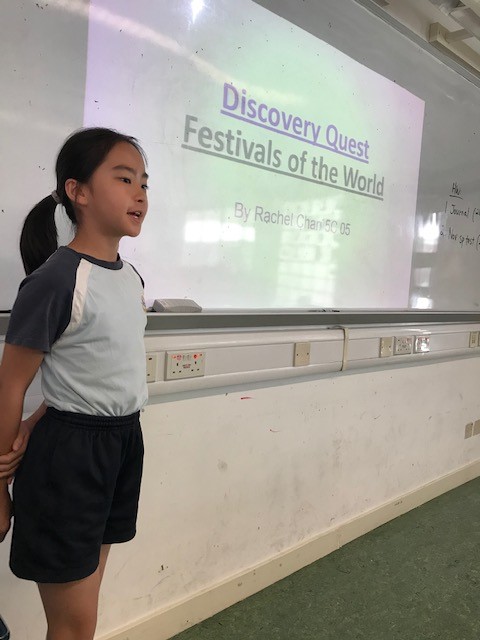 Discovery Quest Presentations
Discovery Quest Presentations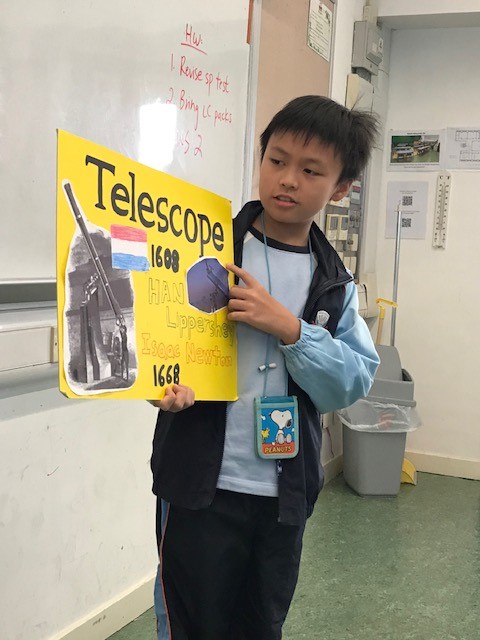 Discovery Quest Presentations
Discovery Quest Presentations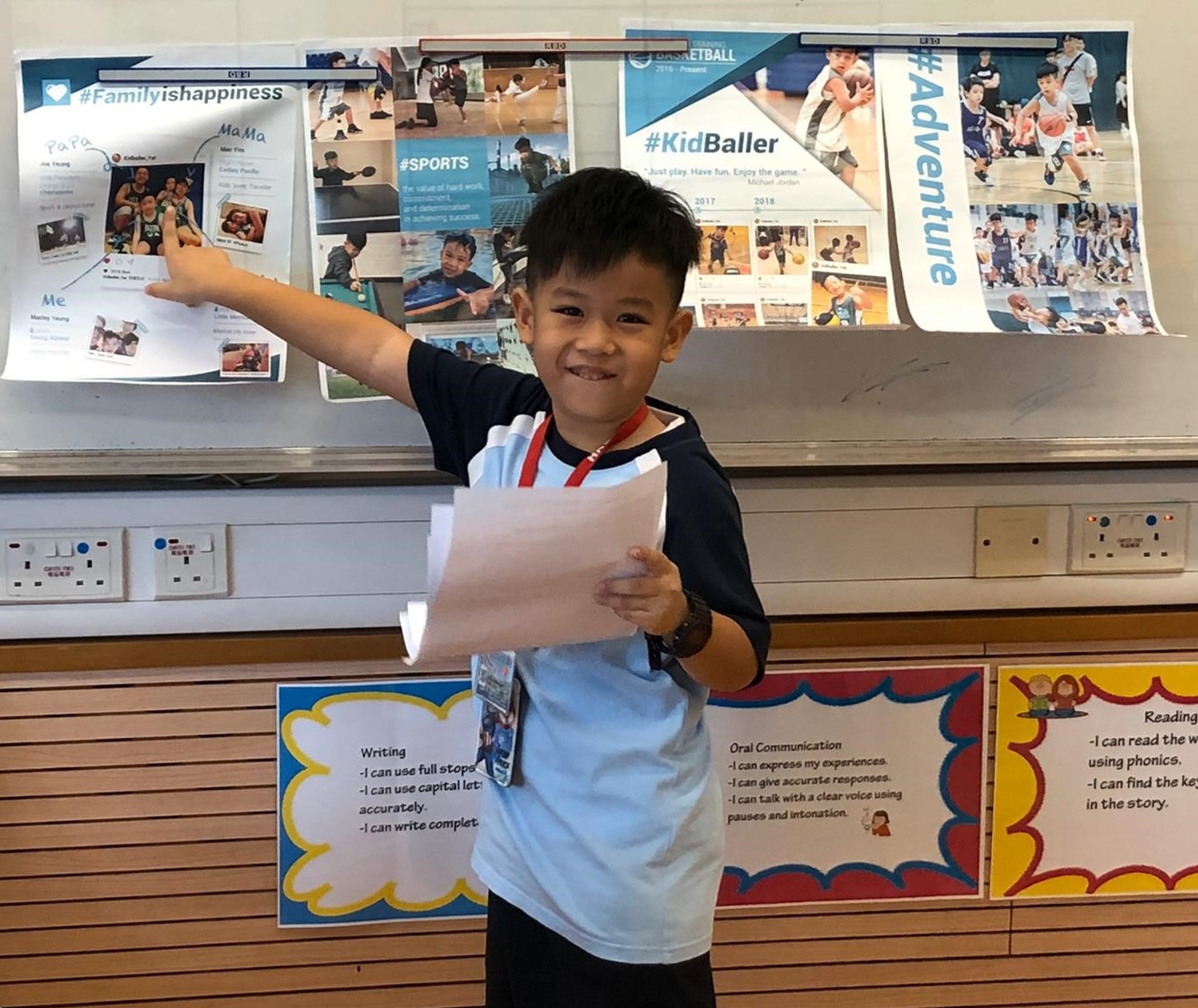 Show and Tell
Show and Tell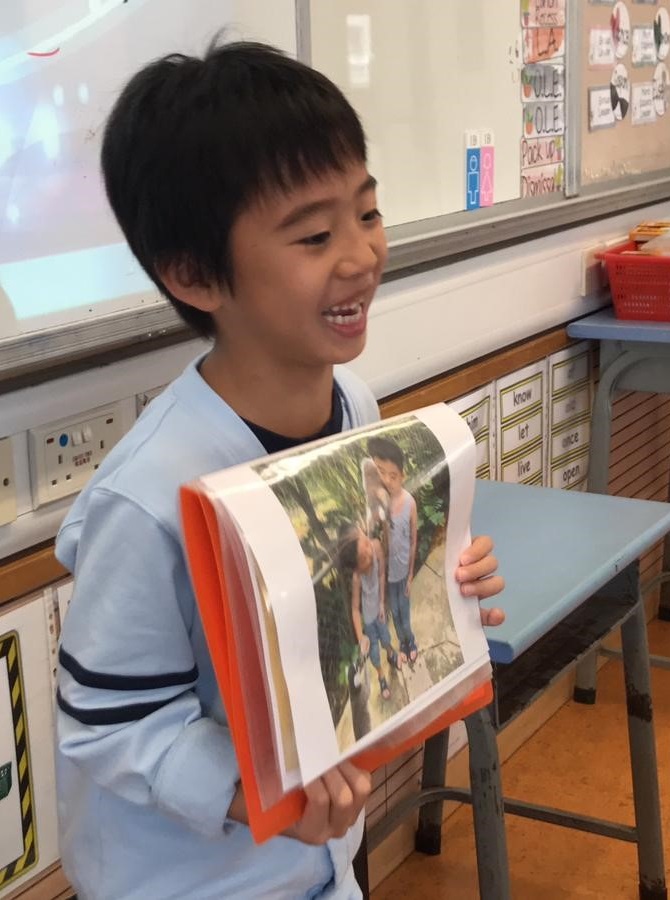 Show and Tell
Show and TellReading
Reading is the backbone of our literacy programme. Motivation is the most important factor in promoting English language reading. Starting with focusing on fluency in the younger primary years, we move towards accuracy and mastery in the upper primary years. In the early years, the focus is on leisure reading, levelled reading and developing motivation and a love for reading English texts. The upper primary reading programme builds on that foundation to develop critical reading skills of students through the in-depth study of classic as well as contemporary texts, both prose and poetry.
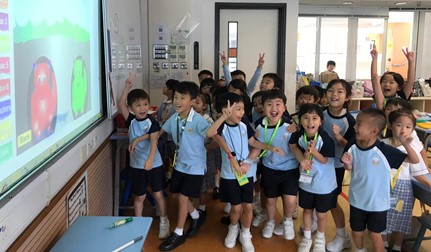 Phonics Game
Phonics Game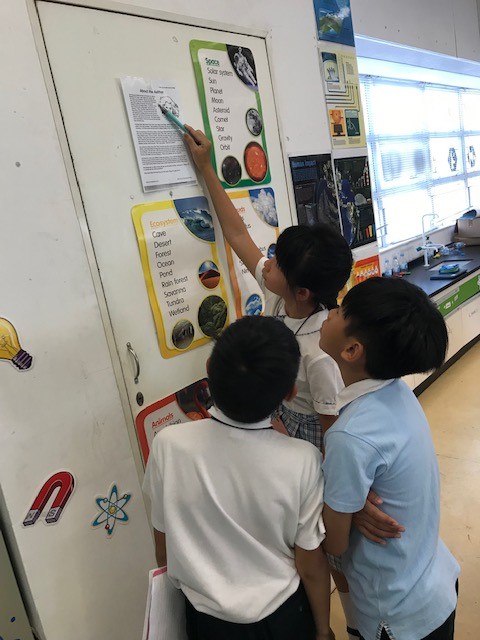 Reading comprehension Activities
Reading comprehension Activities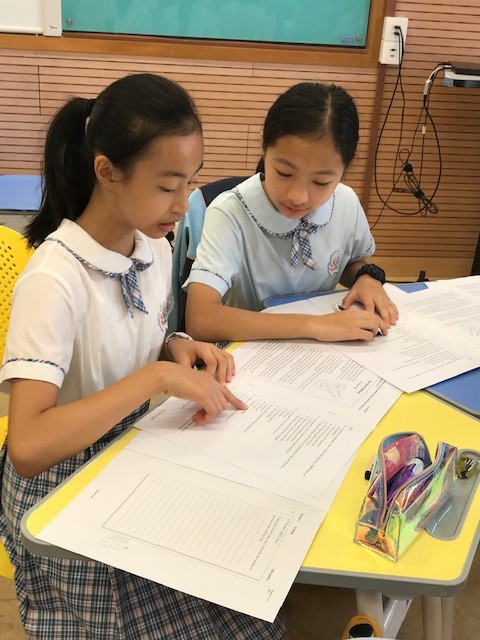 Reading comprehension Activities
Reading comprehension Activities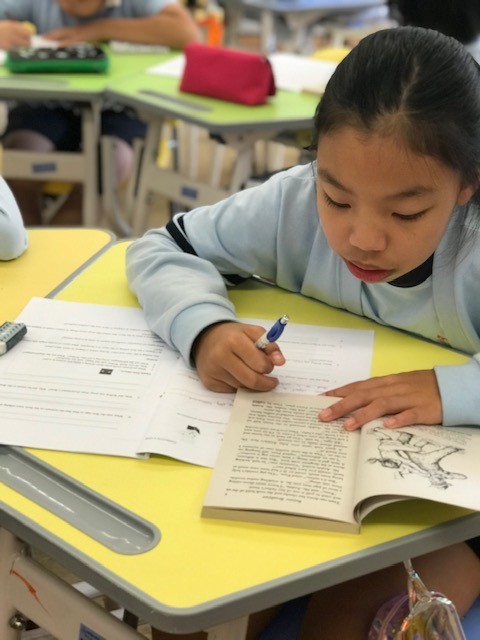 Reading comprehension Activities
Reading comprehension Activities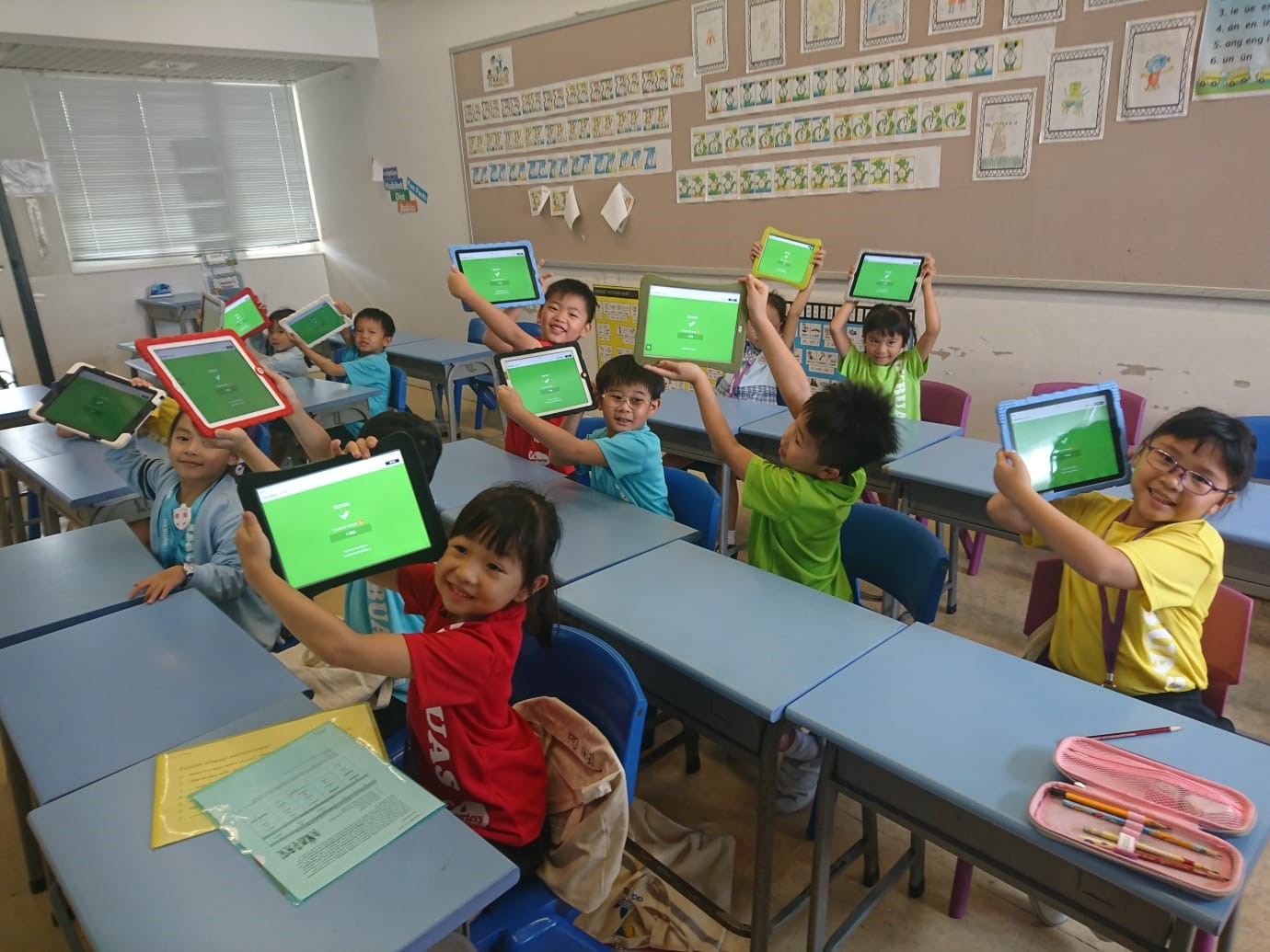 Reading Comprehension G1
Reading Comprehension G1Socratic Circles
Students in the upper primary years engage in Socratic Circle discussions to build a deeper connection and understanding of the novels being studied. With a focus on building consensus, students learn important skills such as turn-taking, generating and responding to higher-order thinking questions and, delivering and receiving peer feedback. This ties in well with the school mission of whole person development by providing an opportunity for students to learn important morals and values through carefully chosen topics or texts. They also gain a sense of belonging and build self-esteem because their voices are being heard and appreciated.
Guided Reading
The lower primary lessons include guided reading sessions with the teacher reading with small groups of students who are grouped by reading levels. The levelled reading texts enable the readers to progress rapidly in terms of fluency, decoding and comprehension. The texts cover a range of fiction, non-fiction, poetry and plays.
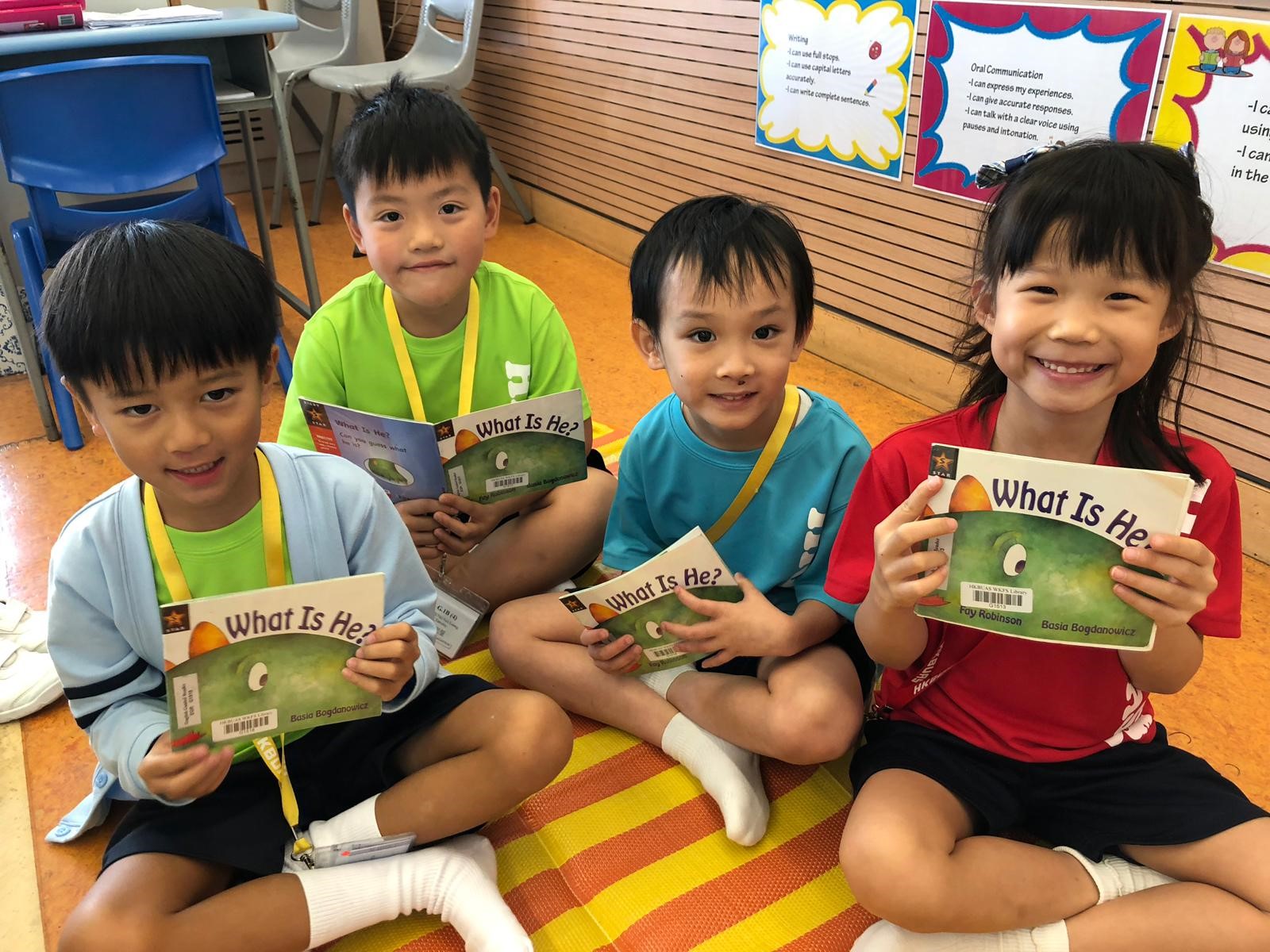 Guided reading in the classroom
Guided reading in the classroom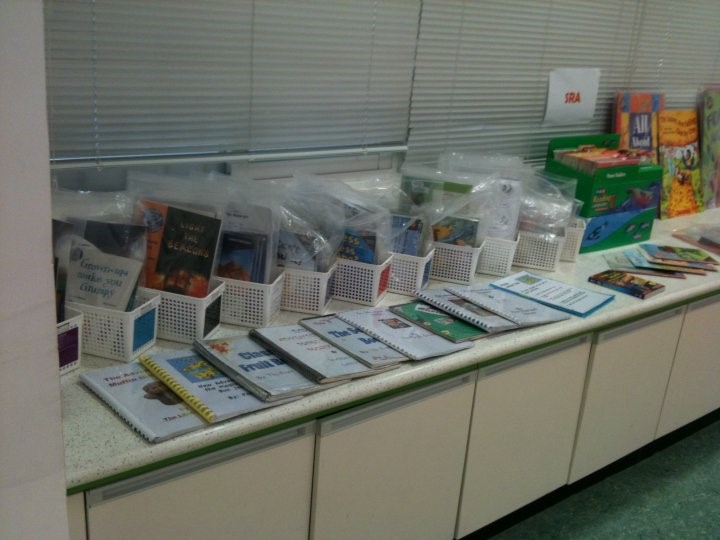 Guided Reading Resources
Guided Reading ResourcesLiterature Circles
As a part of our reading programme, the upper grades (G3-G6) engage in Literature Circles. The goal is for learners to read authentic texts and to engage with literature in a deeper manner developing and applying critical thinking skills. Students take on a variety of roles such as Vocabulary Wizard, Summariser, Connector, Discussion Director or Illustrator in order to read, discuss and respond to texts focusing on different elements each time.
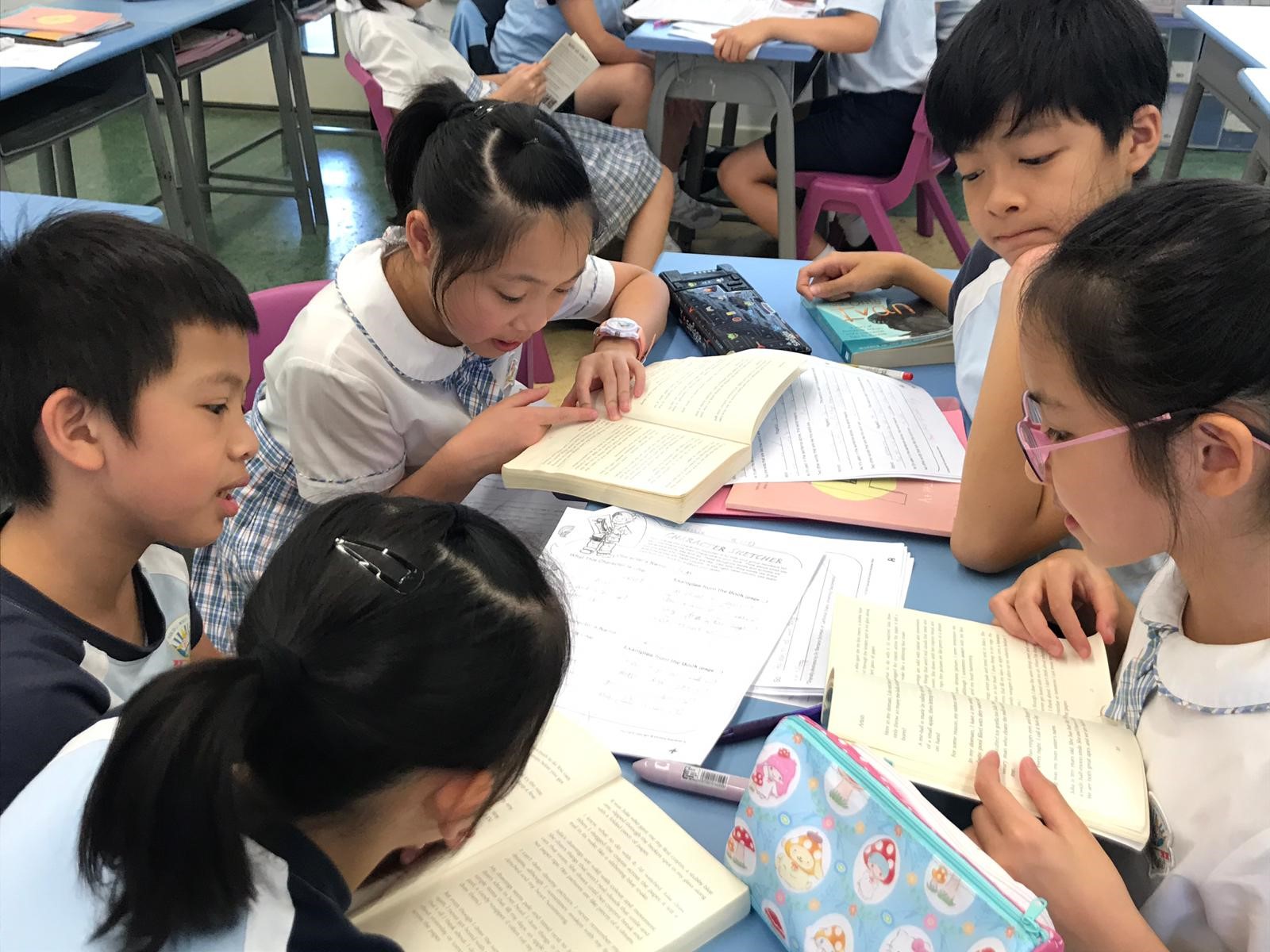
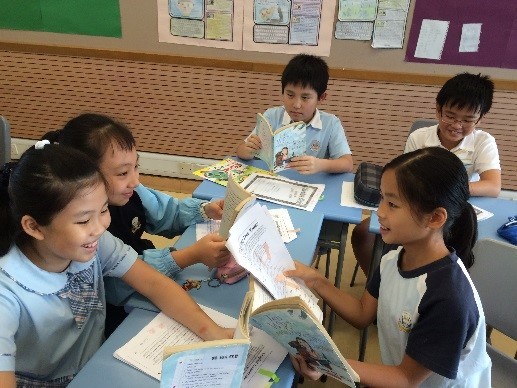
Writing
We believe a child who can speak, can definitely write. To this end, ample phonemic awareness activities form a big chunk of the lower primary curriculum. A scaffolded approach towards writing is adopted incorporating modelled/shared/independent writing. With a focus on text types, students write for authentic purposes. In first grade, students engage in cooking activities before embarking on writing recipes and procedures.
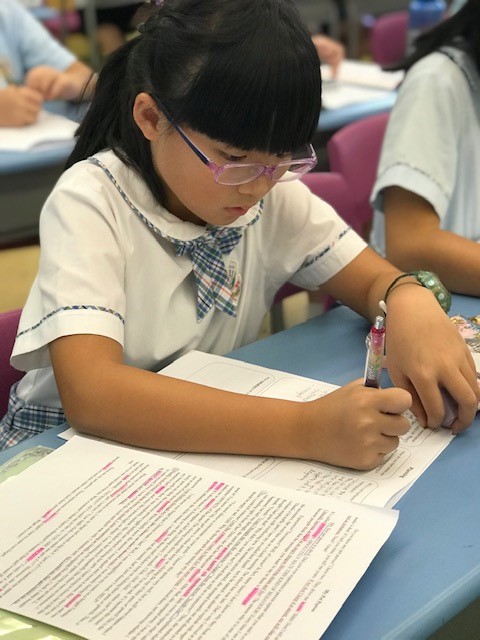 Students working on their planning page and first draft
Students working on their planning page and first draft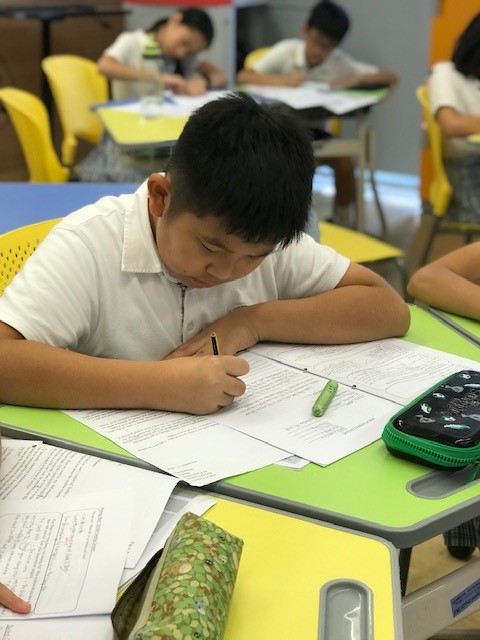 Students working on their planning page and first draft
Students working on their planning page and first draft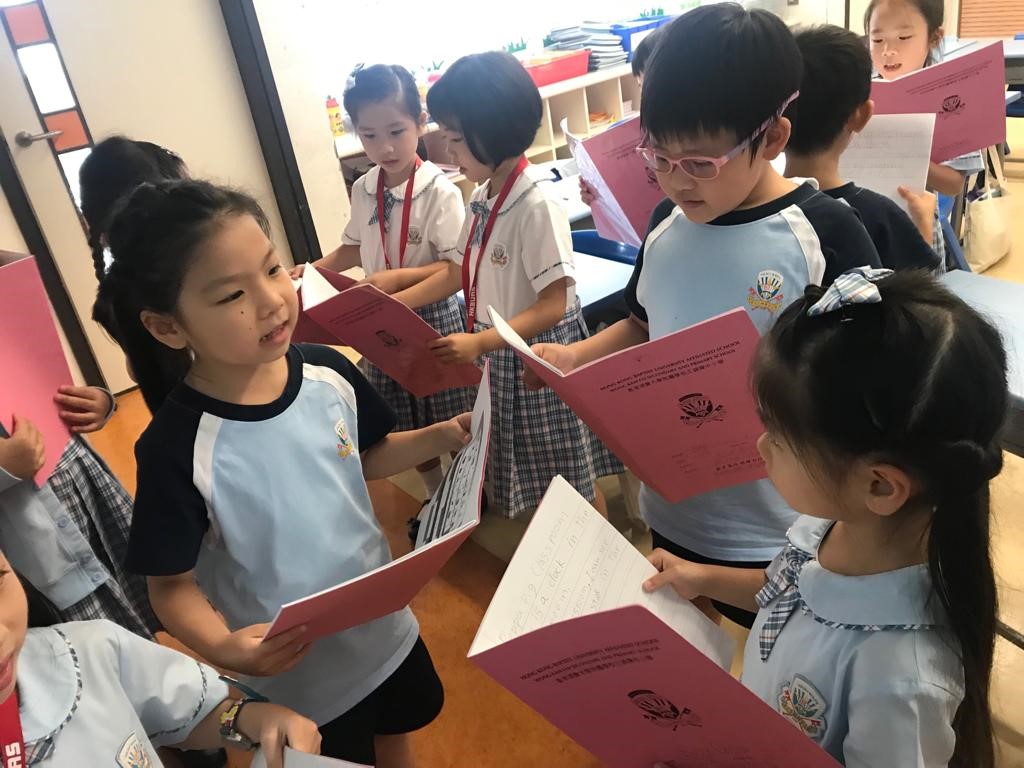 Students sharing their writing with their friends
Students sharing their writing with their friends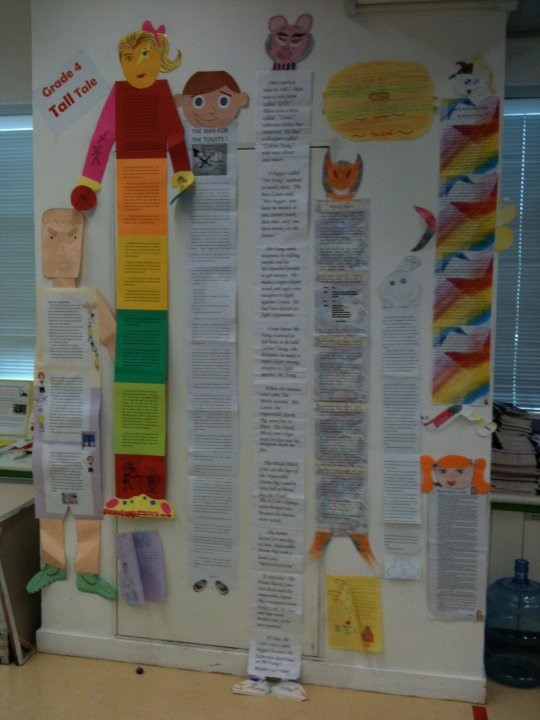 Tall Tales Writing
Tall Tales Writing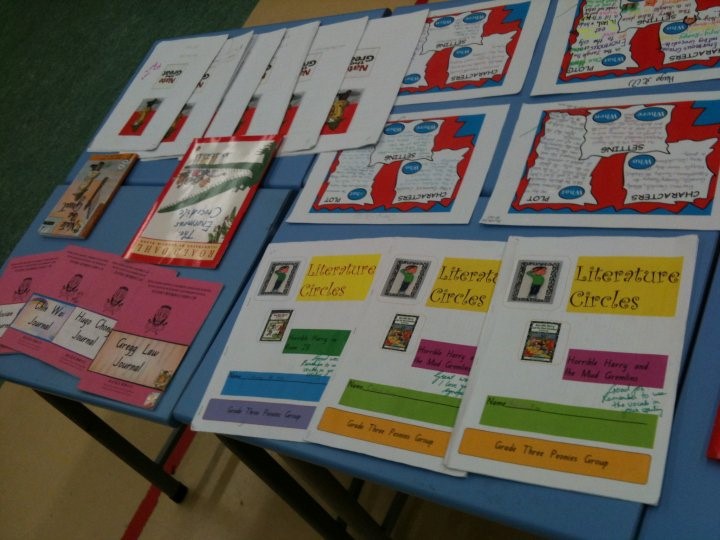 Literature Circles
Literature Circles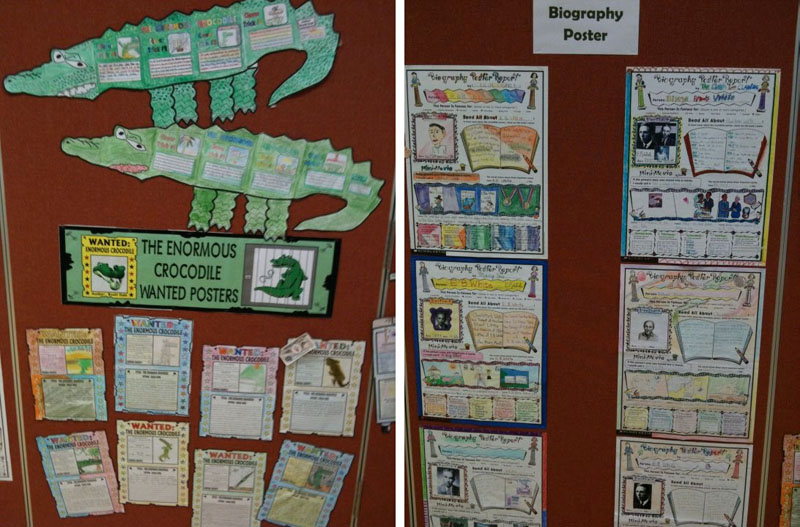 Posters
Posters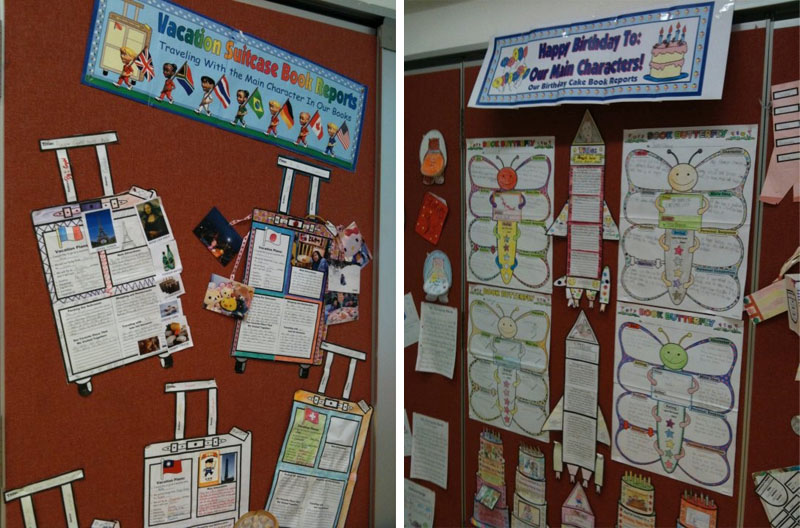 Book Reports
Book ReportsStudents’ Achievements
Hong Kong Battle of Books (Modified Primary)
Our wonderful readers have been participating in the Hong Kong Battle of the Books (Modified Primary) and have been winning with flying colours. Primary students from schools all over Hong Kong participate in this wonderful reading competition where the focus is on reading and collaborating. The students have made a lot of new friends and are eager to join the competition every year.
 Hong Kong Battle of the Books (Modified Primary) winners 2014-15
Hong Kong Battle of the Books (Modified Primary) winners 2014-15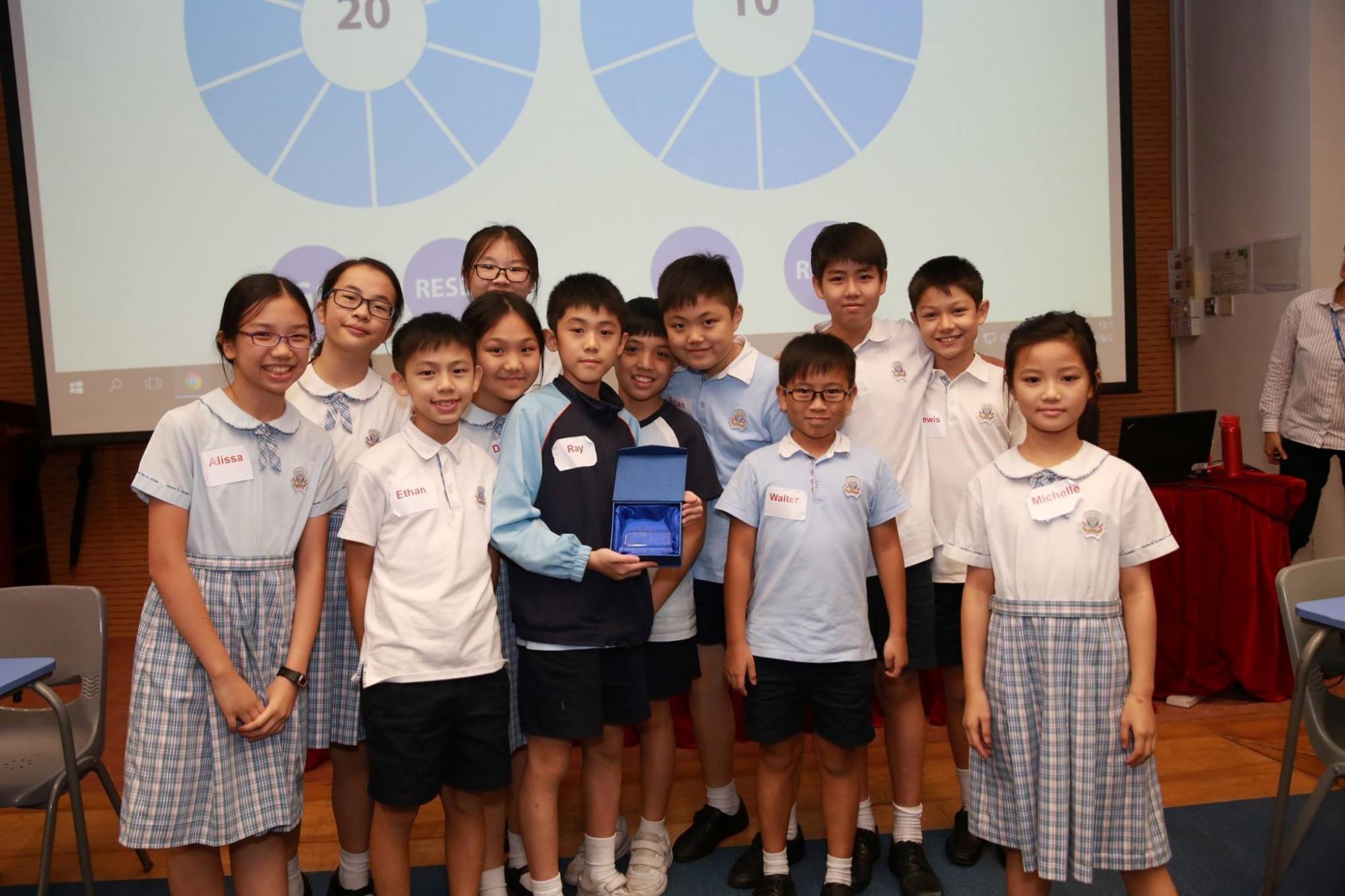 Hong Kong Battle of the Books (Modified Primary) winners 2016-17
Hong Kong Battle of the Books (Modified Primary) winners 2016-17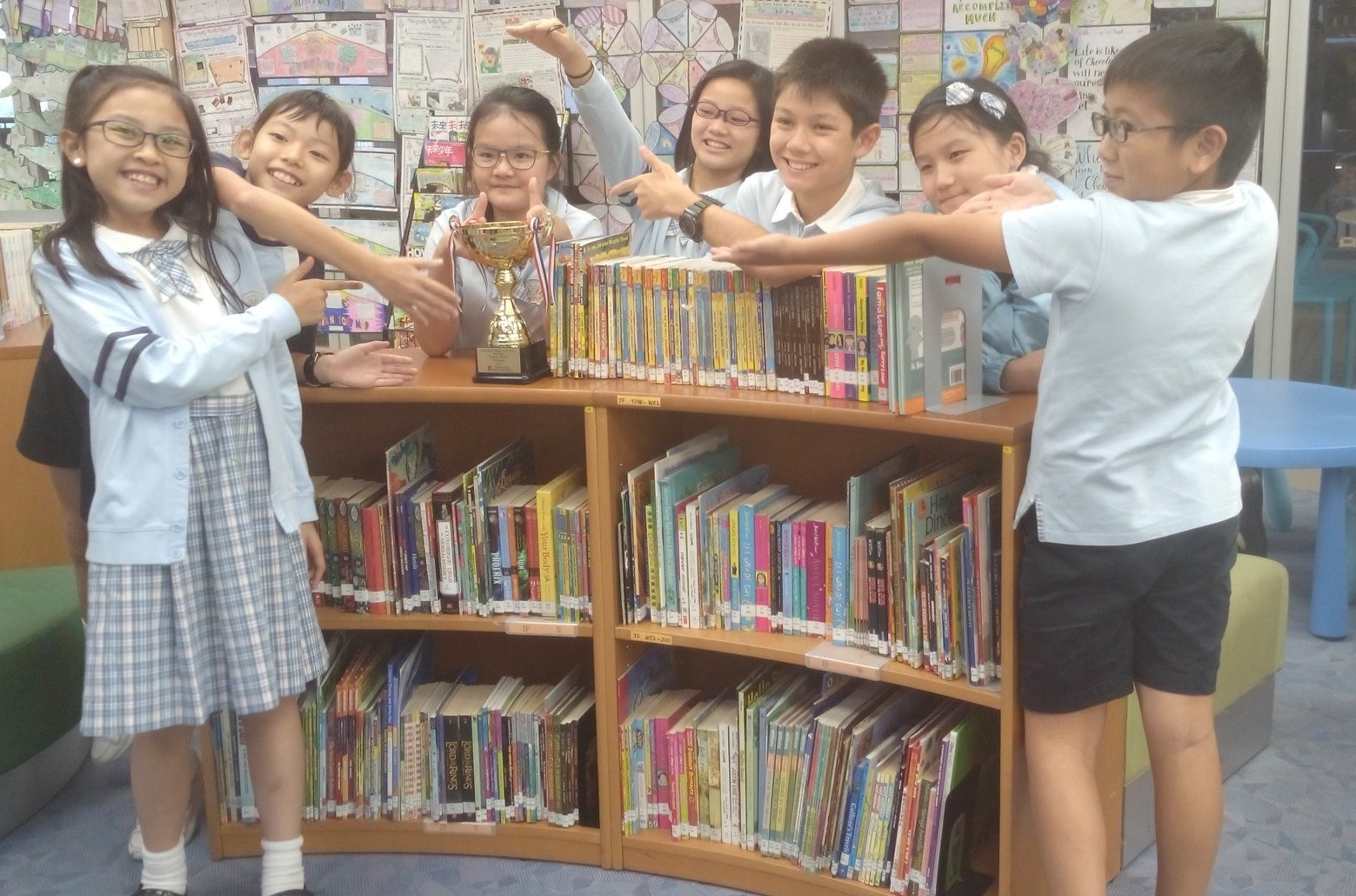 Hong Kong Battle of the Books (Modified Primary) winners 2017-18
Hong Kong Battle of the Books (Modified Primary) winners 2017-18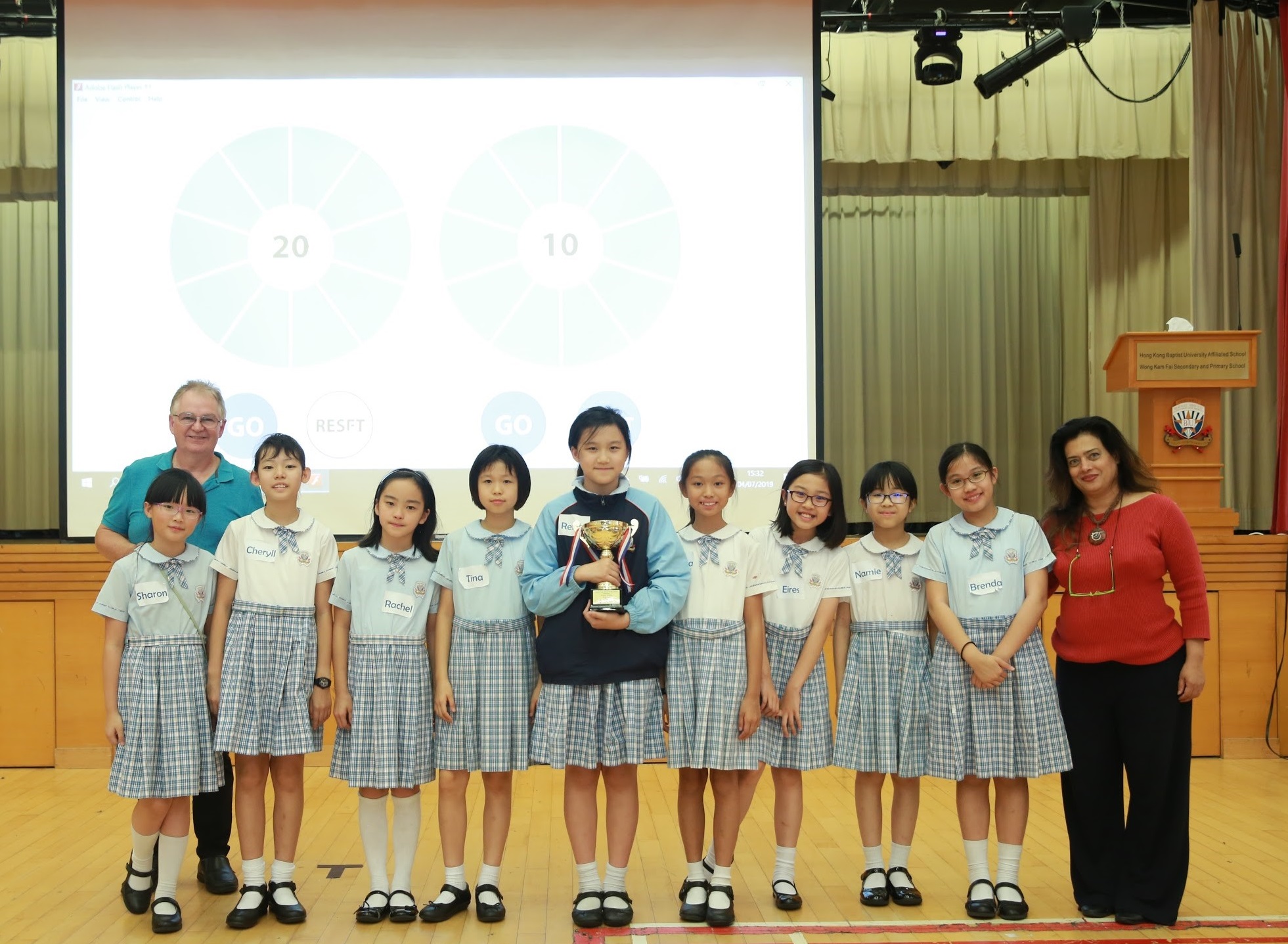 Hong Kong Battle of the Books (Modified Primary) winners 2018-19
Hong Kong Battle of the Books (Modified Primary) winners 2018-19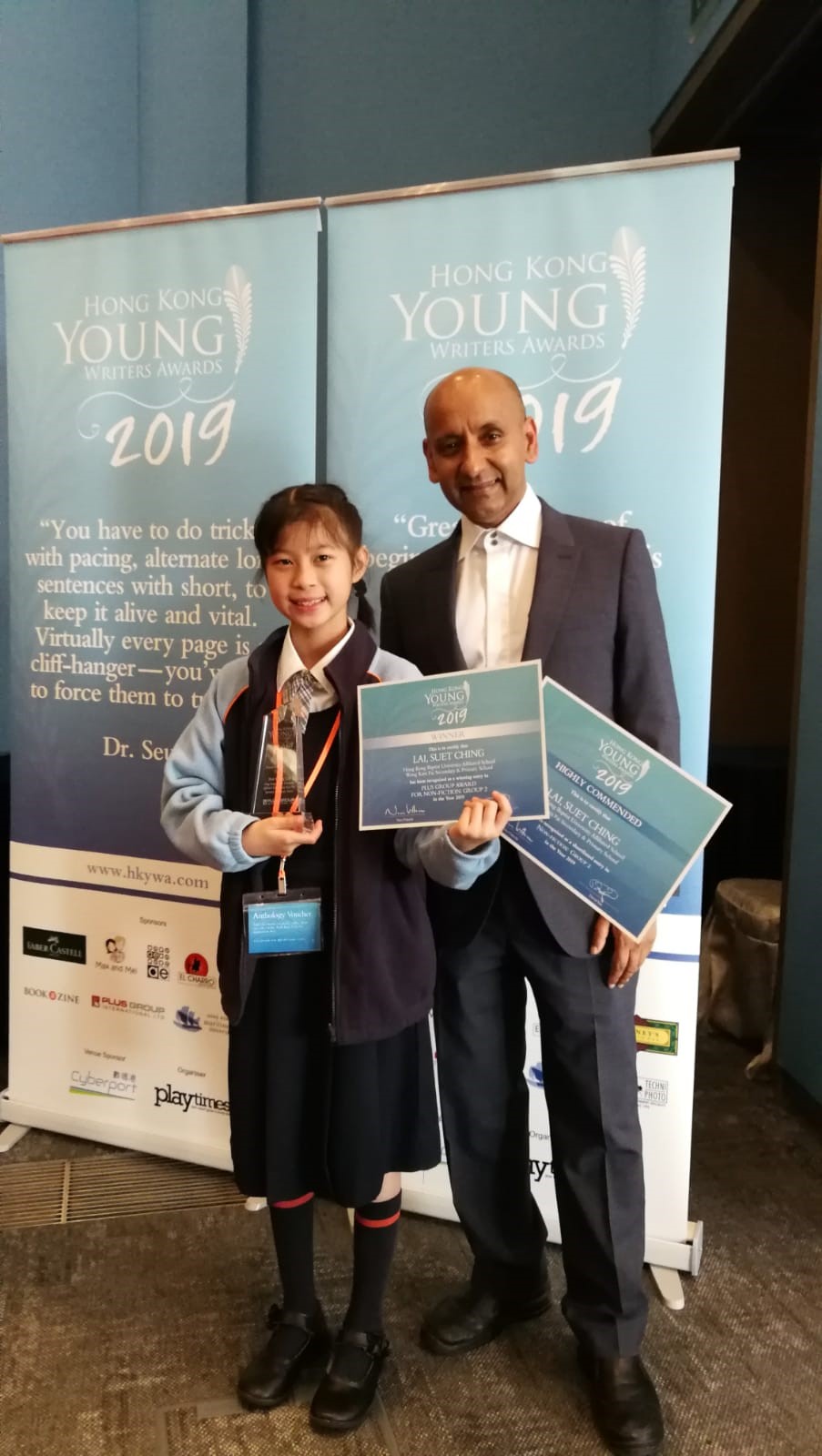 Hong Kong Young Writers Award
Hong Kong Young Writers Award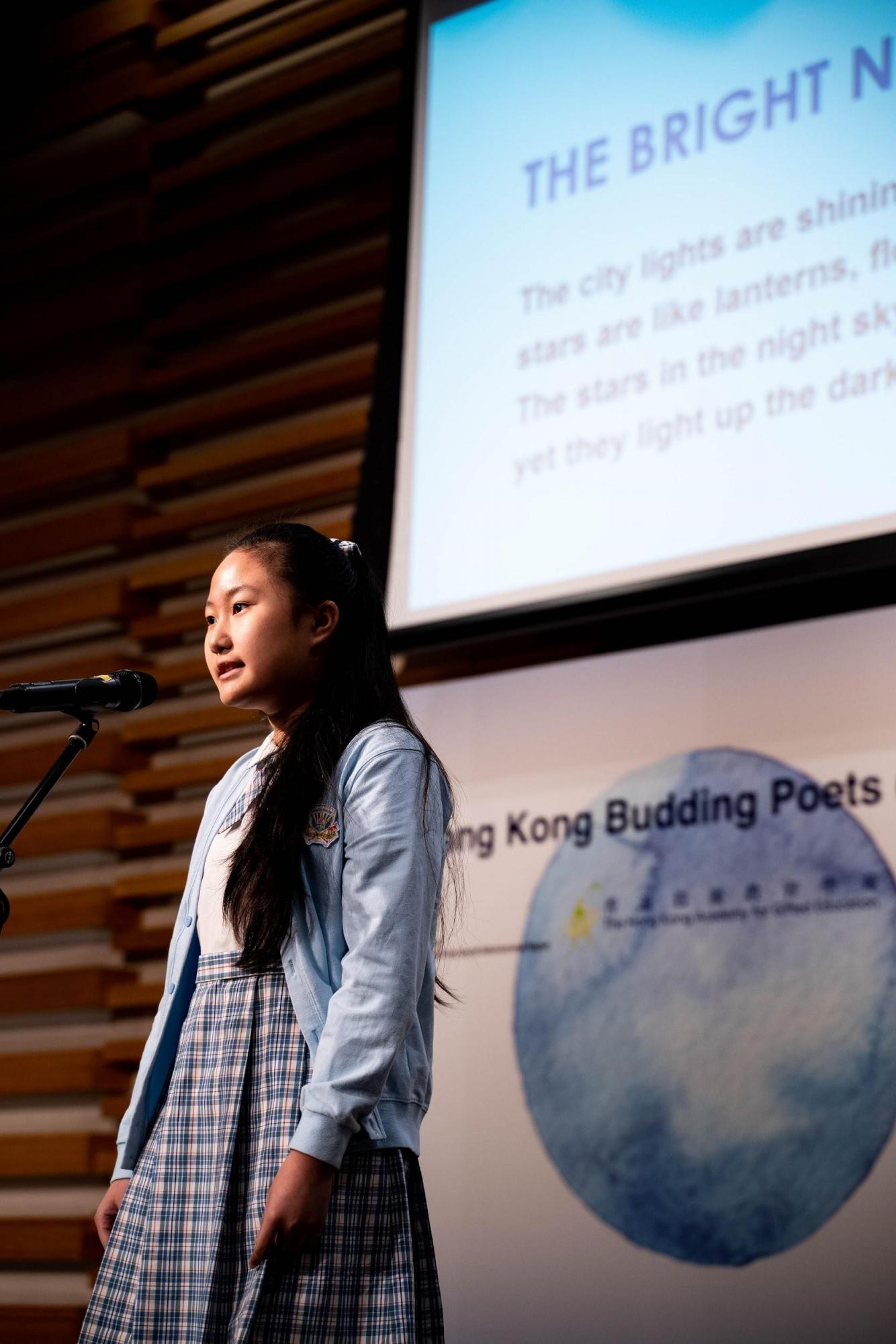 HKAGE HK Budding Poets Award
HKAGE HK Budding Poets AwardThe Chief Executive’s Award for Teaching Excellence
The Primary English team has been the proud recipient of the Certificate of Merit for the Chief Executive's Award for Teaching Excellence in 2014-15. It truly was an honour to be the only primary school to be nominated in the English Language category. In addition to recognition, one of the aims of the award is dissemination of good practices such as reading strategies, formative instructional practices, literature circles, Socratic circles and effective marking and feedback. To that effect the team has conducted lesson demonstrations and workshops to share teaching practices with other schools in the community.